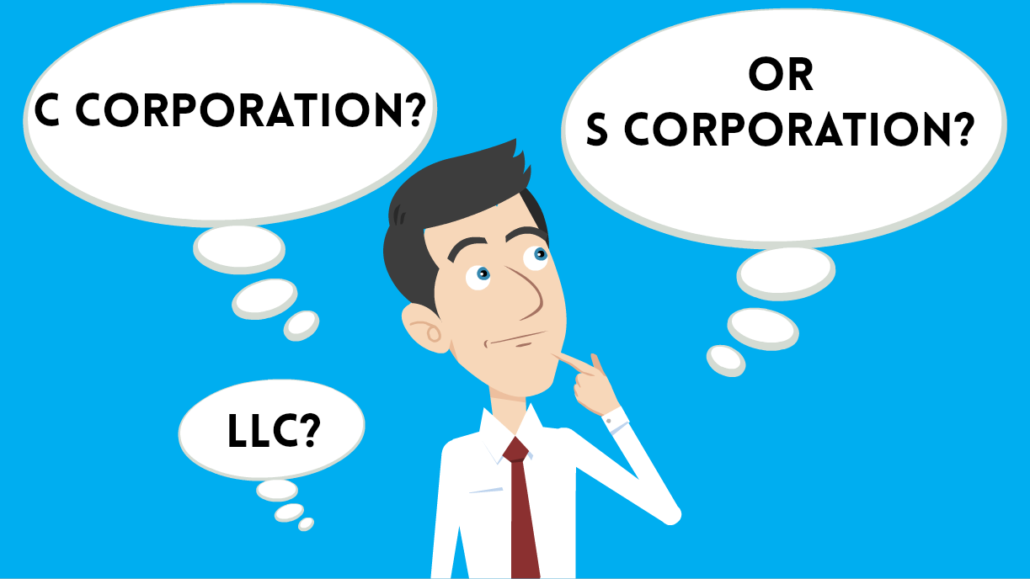

This compensation creates a conflict of interest when we favor their promotion over others. Wealthtender is not a client of these financial services providers. Registered agents are tax professionals who have passed a rigorous Internal Revenue Service test covering every aspect of taxation. Tax professionals who have earned the EA designation are truly tax experts. As income, estate, gift and other sources of tax collections became more complex, the role of the Enrolled Agent increased to include the preparation of the many tax forms that were required.
- One bonus benefit of the EA is additional networking opportunities.
- Unlike many professional jobs, you don’t need a degree in a specific field of study—or a degree at all—so you can take the EA exam at any point.
- Therefore, if certain obstacles prevent you from earning the CPA, but you plan to specialize in tax, you can get the EA license and be just as capable.
- It’s also important to have tax preparation practical experience.
A good example would be when selecting the legal entity for your business. Tax court is the only area in which an enrolled agent cannot represent you. Enrolled agents also had to learn about taxpayer advocacy.
CPAs help clients set and achieve financial goals through money management and financial planning. These goals could include anything from putting down a payment for a home to opening a new branch of business across the country. In other words, a CPA is the go-to if you’re looking for a broad scope of expertise. Certified public accountants, or CPAs, have a more flexible and expansive repertoire than EAs. They deal in all sorts of realms within the tax world, making them a great choice if your questions involve multiple topics. In addition, states approve CPAs, while the federal government approves EAs.
Enrolled Agent Course Content
By comparison, a CPA can have a number of opportunities for earning money. For instance, CPAs working for conglomerates or in a CPA firm could easily bring in six-figure salaries. The Enrolled Agent designation is awarded to a tax professional enrolled agent meaning by the IRS after thoroughly reviewing the experience, conducting background checks, and completing official tests. Therefore, a professional with an EA designation is often considered the most experienced and proven expert in tax law.
The enrolled agent profession began after fraudulent claims were submitted for Civil War losses. Congress took action to regulate EAs to prepare Civil War claims and represent citizens in their interactions with the Treasury Department. In 1884, the Horse Act was signed into law by President Chester Arthur to establish and standardize enrolled agents. An enrolled agent must additionally pass a “tax compliance check.” Their own personal tax records must be in order. They can’t owe the IRS and must have filed all their tax returns due to date. We estimate that the average time to process most applications for enrollment to be 3 months.
After Congress passed the income law in 1913, the duties of EAs were expanded to include tax representation. A certified public accountant license, for example, allows accountants to work in auditing, accounting, and financial planning. Enrolled agents may also become certified tax preparers and work with private companies. Since the EA license holds federal recognition, requirements do not vary by state.
A person may be an EA and a CPA; however, one appointment does not necessarily qualify the person to serve as the other. CPAs’ duties and professional offerings are broader than an EA’s. An enrolled agent is a tax professional who has passed an Internal Revenue Service test covering all aspects of taxation, and a scrupulous background check.
Enrolled Agents represent taxpayers before the Internal Revenue Service for tax issues that include audits, collections. Accordingly, CPAs don’t usually have the same amount of passion for keeping up with and performing tax services. So, with the EA license, you’ll be known as the most committed and qualified tax professional. Then, when CPAs decline opportunities to provide tax assistance, you can swoop in and deliver the help clients need. The IRS grants CPAs and EAs the ability to represent a taxpayer without limitations. As an EA, you will always be in the IRS National Database so long as you maintain the continuing education and Preparer Tax Identification Number requirements.
Is a Maryland State Registered Tax Preparer, State Certified Notary Public, Certified VITA Tax Preparer, IRS Annual Filing Season Program Participant, and Tax Writer. Julia Kagan is a financial/consumer journalist and former senior editor, personal finance, of Investopedia. The EA designation can be revoked for malpractice by the IRS Office of Professional Responsibility. Enrolled agents are held to the standards of the Department of Treasury’s Circular 230, which lists IRS regulations.
Enrolled Agent Education
The Department of Treasury regulates the EA designation, so all 50 states recognize and respect it. Most enrolled agents compete directly with CPAs, bookkeepers, and other accountants. Their enrollment is a federal designation, however, so they can work across state borders. CPAs and tax attorneys must meet the reciprocity requirements of any state other than their own where they’re licensed. These tax professionals must undergo a comprehensive three-part SEE to get their qualification.

EAs must follow the rules and regulations specified in the Circular 30 of Treasury Department. If enrolled agents possess an NAEA based membership, they will follow adhere to an ethical code and guidelines for conducting professional activities. The right to practice before the Internal Revenue Service is regulated by Federal statute, and persons authorized to practice are known as “Federally Authorized Tax Practitioners”, or “FATPs”.
They can practice in any state due to their federal certification. Having SEC-compliant audited statements is not a requirement for most small non-public businesses. Test-Guide.com was founded by a group of educators with a passion for preparing students to succeed on their exams. Gianni has been working in the test prep industry for 6+ years. Gianni has created test prep materials across multiple different exam categories.
Enrolled agent exam scoring
Pass a suitability check, which will include tax compliance to ensure that you have filed all necessary tax returns and there are no outstanding tax liabilities; and criminal background. Successful examination candidates usually have the process completed within 90 days of receipt of their application. Enrollment in, or completion of, the H&R Block Income Tax Course or Tax Knowledge Assessment is neither an offer nor a guarantee of employment. There is no tuition fee for the H&R Block Income Tax Course; however, you may be required to purchase course materials, which may be non-refundable. The Income Tax Course consists of 62 hours of instruction at the federal level, 68 hours of instruction in Maryland, 80 hours of instruction in California, and 81 hours of instruction in Oregon. Additional time commitments outside of class, including homework, will vary by student.
How Do You Register for the EA License Exam?
Both certified public accountants and enrolled agents must adhere to strict ethical standards. Among the differences between these two careers is that certified public accountants are regulated at the state level. By comparison, enrolled agents are regulated at the federal level. In order to become a certified public accountant, candidates are required to complete a minimum of 150 undergraduate hours. Additionally, it’s necessary to pass a four-part examination. Some former IRS employees with five years of taxation experience may apply to become an enrolled agent without taking the exam.
Achieve more in less time!
Prometric requires an email address, a PTIN, a street address, and a government-issued identification document to open an account. Becoming an enrolled agent can take your tax-preparing skills to another level. Read on to learn how to earn a license and access additional resources. Being an enrolled agent offers competitive wages and job security that will constantly expand and be in demand. EAs also enjoy exclusive representational rights for their clients with the various levels of the IRS. After successfully passing the exam, both professionals have to pay their respective licensing fees, which are priced at $140 for EAs and $175 for CPAs.
For example, your EA journey can be pretty short and smooth when your course includes a free trial, access until you pass the EA exam, assistance from exam mentors, and more. Therefore, you should learn more about EA review and get my recommendations so you can find the right enrolled agent course for you. Then, discover my EA review discounts so you can save big on EA exam prep.
We have compiled a list of free EA Exam practice exams, resources, and study guides. Let us know what type of degree you’re looking into, and we’ll find a list of the best programs to get you there. Each part of the SEE costs $185, which is due upon registration. Candidates do not have to take all parts of the test on the same day or on consecutive days. They also do not have to complete the parts in any particular order.
Ohio University offers a variety of programs across 10 different colleges, including 250 bachelor’s programs, 188 master’s programs and 58 doctoral programs. Ohio University is regionally accredited by the North Central Association of Colleges and Schools. It is important for individuals to fully understand the types of credentials that are required to become an enrolled agent because the occupation comes with strict regulations. Although CPAs may have a greater earning potential, that salary comes with the need to spend longer in school, gain more work experience, and take a much more in-depth exam.
Type of federal return filed is based on your personal tax situation and IRS rules. Additional fees apply for Earned Income Credit and certain other additional forms, for state and local returns, and if you select other products and services. Visit hrblock.com/ez to find the nearest participating office or to make an appointment. Both enrolled agents and certified public accountants enjoy virtually unlimited practice rights before the IRS. That means there are no restrictions to the types of tax issues they can handle and the type of taxpayers they can serve.
If you’re interested in becoming an enrolled agent, one of the first things to consider is how much education you need. We’ve determined that 47.6% of enrolled agents have a bachelor’s degree. In terms of higher education levels, we found that 7.5% of enrolled agents have master’s degrees. Even though most enrolled agents have a college degree, it’s possible to become one with only a high school degree or GED.
